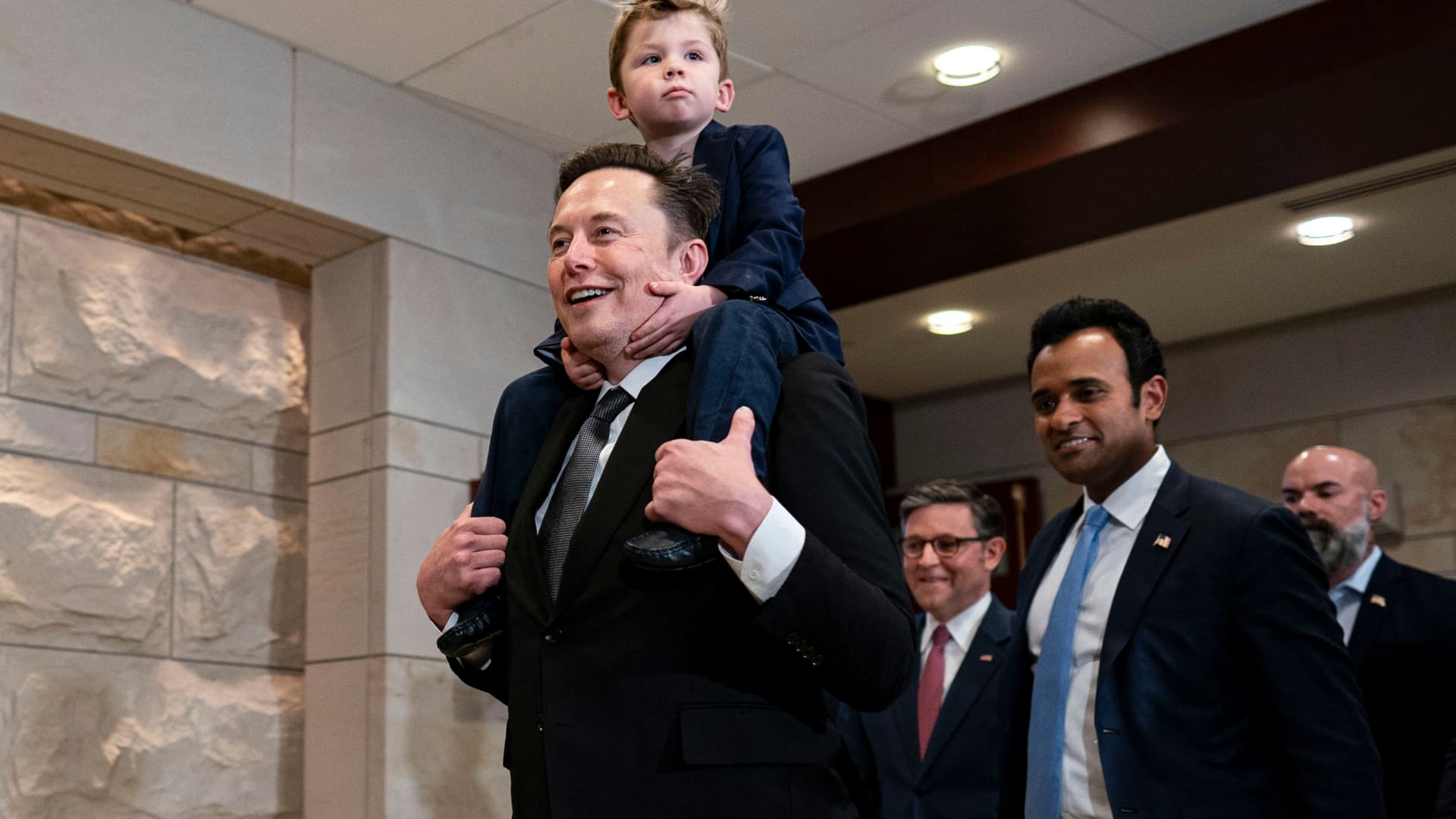KEY POINTS
- Elon Musk and Vivek Ramaswamy, whom President-elect Donald Trump appointed to lead a new government efficiency team, said they intend to call federal employees back to the office five days a week.
- Companies such as Amazon and The Washington Post are adopting a similar policy in 2025.
- But many companies will keep remote or hybrid work arrangements, largely because they boost profits, economists said.
- Some view return-to-office mandates as a stealthy way to reduce employee head count.



I can think of two billionaires that I’m tentatively okay with. One sold a software service for a dollar a year to a couple billion people, and the other is a musician with an extremely valuable musical portfolio and popular live shows.
The key part being that they almost entirely made their money by actually producing something themselves, not just leveraging money to make money or leeching off the work of others, and what they made actually provides value. $1 a year for communication services is a fair value, and the musician has easily provided more than a billion hours of enjoyment.
I can’t think of anyone else that it seems reasonable to have that much money that actually has that much money.
I agree we should eat the rich, but I’ll also admit that it’s a rare treat, so worth going all out on the seasoning and dining experience. At the least some fresh herbs and butter basted. :P
I’d cap it high enough so that you can obviously retire with a life of luxury, leave your children unquestionably provided for, and start a few odd businesses without realistically risking the previous points.
“Solving” you and your families material needs is sort of the endgame for wealth. The extra for random business ventures is because society actually benefits from people with safety nets taking risks to see if something makes money. It works better if we had a society wide safety net so failure doesn’t kill you, but even a limited form still has a benefit.
Anything leftover shouldn’t go to charity, it should go back to the society that helped them get the money in the first place. Charity is good, but it’s ultimately a bandaid on social problems, and too often isn’t distributed evenly or without condition to those who need it. Taxes and entitlement programs won’t require a religious sermon to get food,